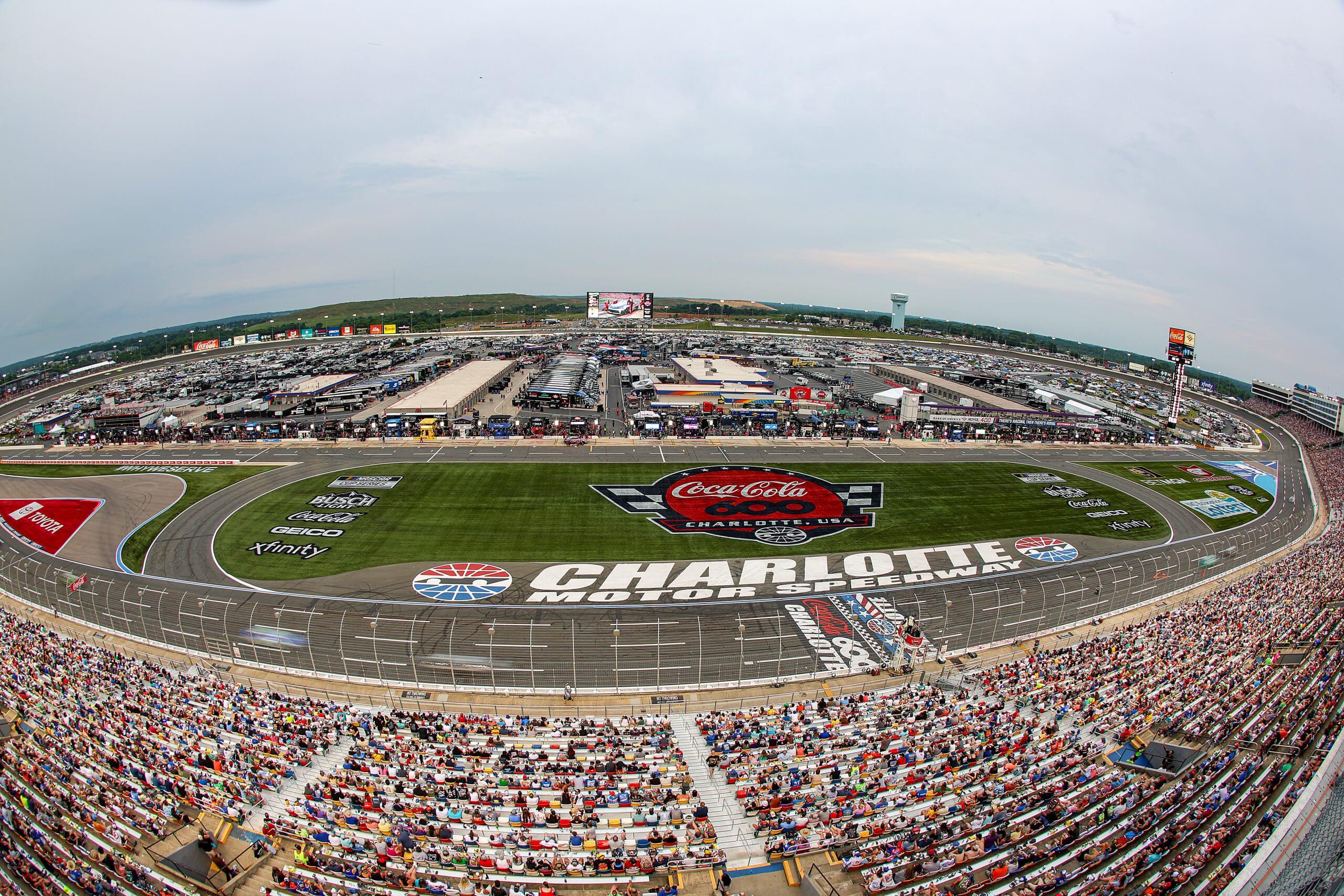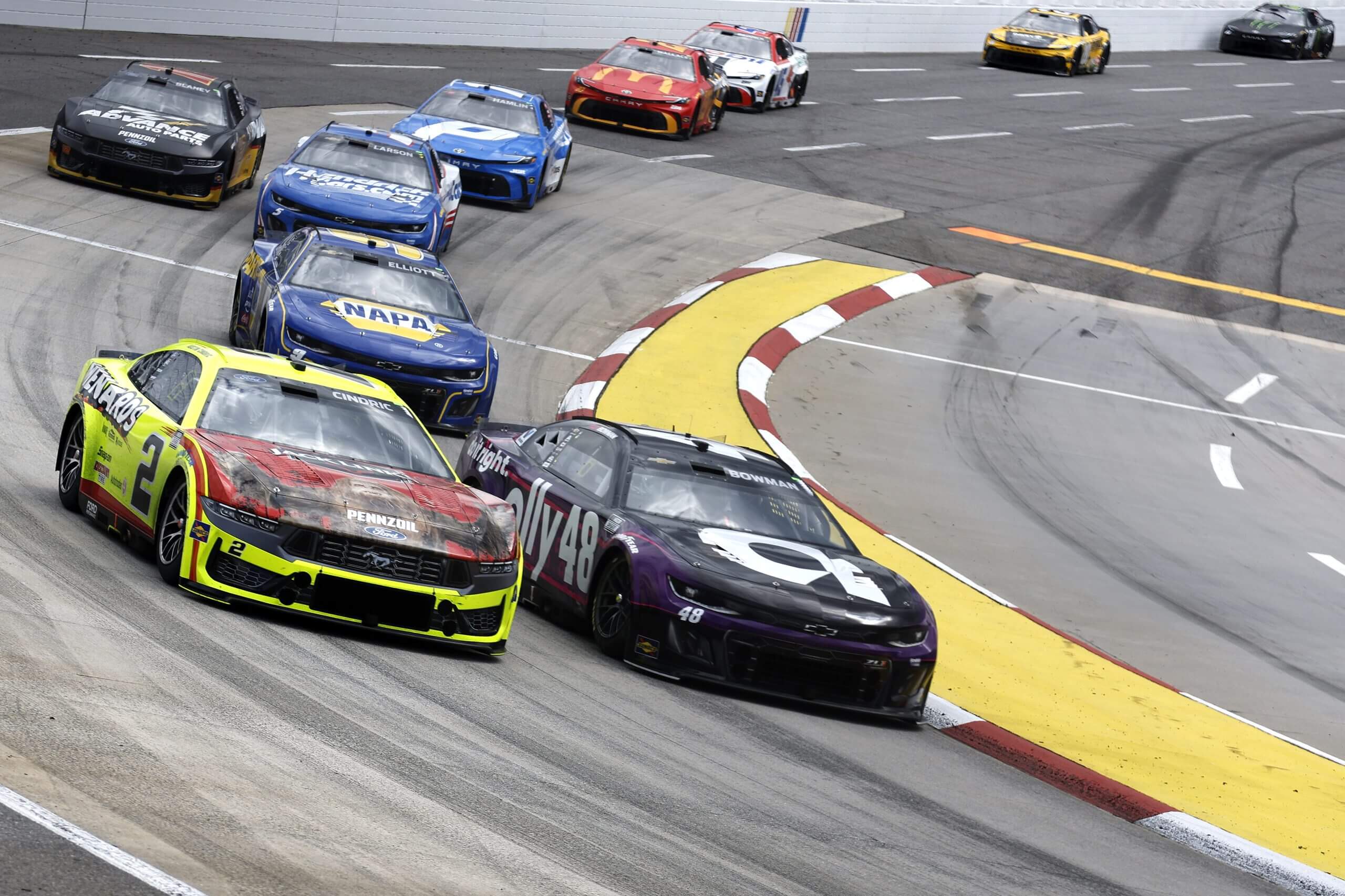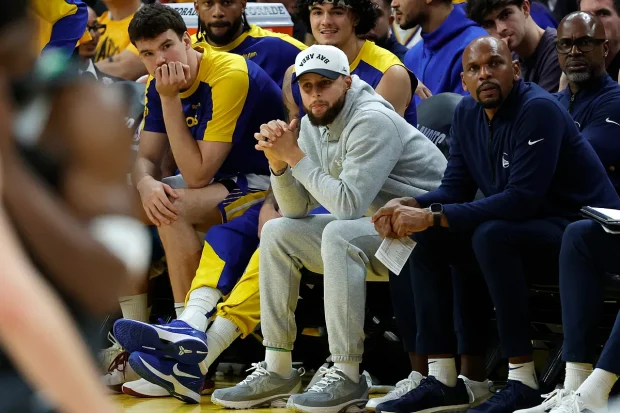
Depending on your perspective, NASCAR crowning its three national series champions at Daytona or Talladega is either a delightfully wild way to decide the title or a completely asinine thought considering the volatility and randomness associated with the style of racing that unfolds on the two drafting tracks.
Advertisement
If you fall into the latter camp, fear not. That thought is universally shared among NASCAR’s decision makers. Neither Daytona nor Talladega is under consideration for the championship rotation model NASCAR announced Tuesday, where its title finale will shift yearly to a different track. Instead, the preference for now is to rotate the championship weekend among intermediate tracks or short tracks rather than drafting tracks or even road courses.
“Never say never, but I think we’ve unanimously agreed that (championship weekend) needs to look and feel like what we would expect traditional NASCAR racing to look and feel like,” said Ben Kennedy, NASCAR executive vice president, chief venue and racing innovation officer. “Short tracks, intermediate tracks, (one-) mile tracks are all on the board.
“We’ve talked about road courses as well. Again, never say never, but road courses are probably lower on the list as we think about championship venues. So we’re really going to hone in on short tracks and … mile-and-a-halfs for now.”
The exact number of tracks that will eventually make up the rotation is unknown, but NASCAR stated it will certainly include both Homestead and Phoenix. Homestead hosted the championship from 2002-19 and will do so again in 2026, while Phoenix has served as host since 2020 and will do so again sometime in the future. Both tracks check multiple boxes that NASCAR seeks in a host for its championship weekend, including being a weather-friendly, traditional-style oval in close proximity to a major market.
So then, what other tracks on the current Cup Series schedule should be considered in the running to host NASCAR’s championship weekend? Based on the criteria above, plus other various factors, go ahead and rule out (in alphabetical order): Atlanta, Circuit of the Americas, Charlotte Roval, Chicago Street Course, Daytona, Dover, Gateway, Indianapolis, Iowa, Mexico City, Michigan, New Hampshire, Pocono, Richmond, Sonoma, Talladega and Watkins Glen.
That leaves eight tracks on the current schedule with a chance — though to varying degrees — of eventually being included in the championship weekend rotation. Let’s examine based on what has been stated publicly and conversations with numerous industry contacts.
Bristol
Case for: Bristol already hosts a popular playoff race that serves as the cutoff for Round 1. It brings the possibility of a dramatic finale featuring a last-lap bump-and-run. It likely would provide an electric atmosphere.
Case against: Many recent races have left a lot to be desired when it comes to the on-track action. Concerns exist whether the title could end up being a runaway. There’s a likelihood of inclement weather. It’s a small market in an area of the country not easily accessible.
Advertisement
Charlotte (oval)
Case for: Charlotte produces consistently great racing. It’s in the heart of NASCAR country, which would allow family, friends and team personnel to pack the house. It’s a good-sized, fan-friendly market. There would be an opportunity to turn the week into a bona fide celebration of the sport that could incorporate events at the NASCAR Hall of Fame, team shops, etc.
Case against: Outside of the weather and lacking the pizazz of Las Vegas or South Florida, there is little reason why Charlotte isn’t deserving of consideration. Still, Charlotte hasn’t received much buzz within the industry as a possible championship host.

Charlotte hosting a finale would give a NASCAR a chance to celebrate its history in a strong market at its “home” track. (David Jensen / Getty Images)
Darlington
Case for: There is no more traditional track than NASCAR’s oldest superspeedway. It’s a classic “driver’s track” that fully challenges their skillset and features strong attendance, especially for its fall race, the Southern 500.
Case against: The closest major metropolitan area (Charlotte) is two hours away, and the facility is in need of upgrades. NASCAR isn’t moving the Southern 500 off Labor Day weekend, which means that in years Darlington would host the finale, it would have two races just 10 weeks apart.
Kansas
Case for: It’s arguably NASCAR’s best track, routinely producing championship-caliber excitement. Across the board, fans, drivers and teams would love this. Kansas City is a passionate sports town.
Case against: If the NFL’s Chiefs have a home game on championship Sunday, NASCAR may struggle to gain attention. While Kansas City isn’t small, it also is only the 33rd-biggest media market in the United States. Unpredictable weather means NASCAR could get lucky with a beautiful day, or it could be cold and uncomfortable.
Las Vegas
Case for: It’s among NASCAR’s most competitive tracks, in a tourist-destination city known for hosting big events. Weather is a non-issue, and it has hosted a popular playoff race since 2018. It checks every box on NASCAR’s list.
Case against: There’s little downside. Sure, the NFL’s Raiders could have a home game that Sunday and Formula One visits later in the month, but neither should be considered an insurmountable hurdle.

The Martinsville playoff race has produced excitement in the past, but the small market and short-track racing concerns make it a championship longshot. (Logan Riely / Getty Images)
Martinsville
Case for: If you thought Martinsville’s semifinal playoff round provided next-level intensity, just imagine the short track deciding the championship. Buckle up. And make sure extra security is on standby.
Case against: Considering how the Next Gen often performs on short tracks, naming Martinsville as host would require a leap of faith by the sanctioning body. Much like Bristol, market size and location are significant hurdles. The facility isn’t the standard you’d want for a championship venue.
Advertisement
Nashville
Case for: A booming city that knows how to put on big events and would appeal to league partners and team sponsors who’d have no shortage of entertainment options. Although Nashville is not the most competitive among intermediate-sized tracks, it’s still viable. The quality of racing shouldn’t be in question.
Case against: The track is located 30 miles from downtown Nashville, and it would need enhancements. The weather would likely be passable, though not to the level of some other locations on this list. Would fans respond to a championship being here?
Texas
Case for: Once one of NASCAR’s more derided tracks, Texas is making a comeback. Last Sunday’s race had a double-digit increase in attendance and also saw notable gains in other key metrics. The track is one of the most demanding on the schedule (some would say chaotic) and would add a layer of intrigue due to its unpredictability. It’s the fourth-largest media market in the U.S.
Case against: The facilities could use some TLC. Football, football, football: Any championship weekend would be competing against major college programs on Saturday and the NFL’s Dallas Cowboys on Sunday. Texas previously hosted a playoff race for several years that often struggled to capture fan interest.
(Top photo of Las Vegas Motor Speedway, during March’s Cup Series race: Chris Graythen / Getty Images)
This news was originally published on this post .










Be the first to leave a comment